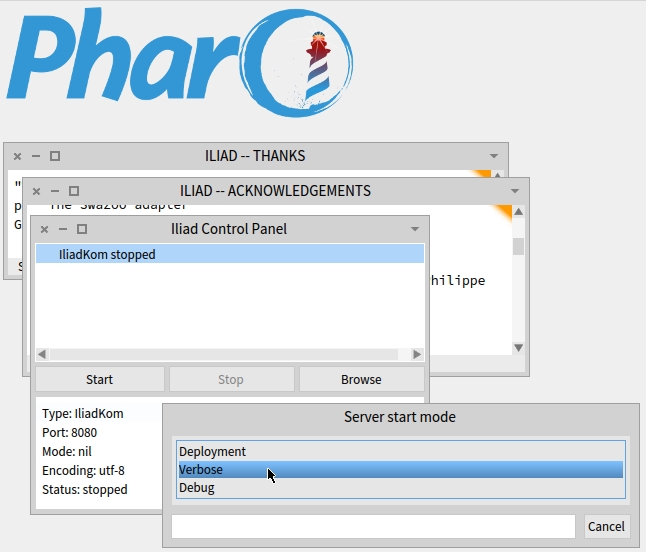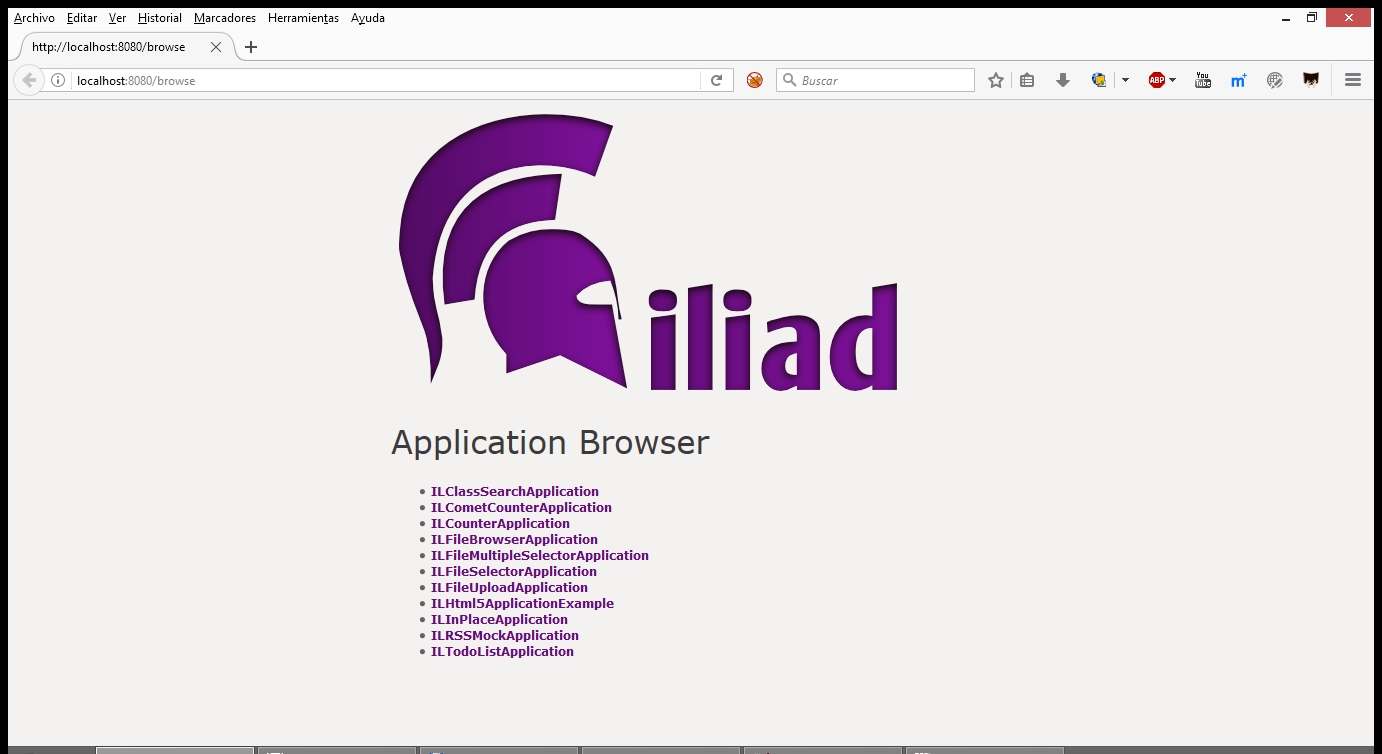Iliad Web Framework
Iliad is a web framework for Smalltalk, an object-oriented, dynamically typed, reflective programming language. Iliad is heavily based on reusable stateful widgets, Iliad lets you build powerful dynamic applications easily. Iliad was designed around tight integration between Javascript components on the client and Smalltalk components on the server. It has the following main features:
- AJAX is completely transparent, no need to write JavaScript code.
- Includes a Formula package which makes it easy to build validated forms.
- Iliad is Web Server agnostic.
- Iliad Widgets can append or prepend other widgets.
- Smalltalk code can be evaluated on DOM events.
Iliad allows you to trigger Smalltalk code when an user clicks on a link or submit a form instead of bothering you with low level details. Thanks to its JavaScript layer Iliad automatically uses AJAX requests to update the client state, and it will nicely degrade to normal requests if javascript is not enabled, so you don’t have to bother about that either.
Download
Iliad pre-loaded images can be downloaded from the following links:
Installation
To install the Iliad stable version in a Pharo Smalltalk environment, evaluate:
Metacello new
smalltalkhubUser: 'hernan' project: 'Iliad';
configuration: 'Iliad';
version: #stable;
load
To install the Iliad “bleeding edge” version in a Pharo Smalltalk environment, evaluate:
Metacello new
smalltalkhubUser: 'hernan' project: 'Iliad';
configuration: 'Iliad';
version: #bleedingEdge;
load
Screenshots
Iliad Control Panel

Iliad Application Browser

Iliad Sessions Browser

Documentation
Iliad’s documentation is evolving. We encourage newcomers to start with the basic tutorial. We are looking for contributors to help us improve this documentation.
If you can’t find what you’re looking for in the documentation, you can post an email on the mailing list.
Key Concepts
In Iliad you write source code in pure Smalltalk, re-using application code with widgets (ILWidget) and subclassing framework classes. When an user access a web page, then valid (X)HTML is generated and sent to the client using “elements” (ILElement) - objects able to print themselves as (X)HTML.
As with most web server frameworks, you start by subclassing one of the main classes (most of the times, ILApplication) and then write “controller methods” which are used to dispatch requests to stateful widgets. The framework handle sessions and applications. Each session stores one instance of the same application class.
When the user intracts with widgets, they will be updated with AJAX requests. Controllers are oftenly used to get a domain object from the request’s url, and store it in the application.
Community
Mailing list
You can join the Iliad community by joining the mailing list.
Development
Iliad was developed initially under GNU Smalltalk, but now it is maintained mainly in Pharo, although a Squeak port is also available..
Submit bug reports to the issue tracker.
Contributors (By alphabetical order)
- Bernat Romagosa
- Bèrto ëd Sèra
- Canol Gökel
- Eli Green
- Germán Arduino
- Göran Krampe
- Gwenael Casaccio
- Janko Mivšek
- Joachim Jaeckel
- Nicolas Petton
- Paolo Bonzini
- Sébastien Audier
- Stefan Schmiedl
- Tony Fleig
Pharo maintainers
- Benoit Astruc
- Hernán Morales Durand
- Steven Costiou
MIT Licence
Copyright (c) 2008-2017 Nicolas Petton , Sébastien Audier, The Iliad Community
Permission is hereby granted, free of charge, to any person obtaining a copy of this software and associated documentation files (the ‘Software’), to deal in the Software without restriction, including without limitation the rights to use, copy, modify, merge, publish, distribute, sublicense, and/or sell copies of the Software, and to permit persons to whom the Software is furnished to do so, subject to the following conditions:
The above copyright notice and this permission notice shall be included in all copies or substantial portions of the Software.
THE SOFTWARE IS PROVIDED ‘AS IS’, WITHOUT WARRANTY OF ANY KIND, EXPRESS OR IMPLIED, INCLUDING BUT NOT LIMITED TO THE WARRANTIES OF MERCHANTABILITY, FITNESS FOR A PARTICULAR PURPOSE AND NONINFRINGEMENT. IN NO EVENT SHALL THE AUTHORS OR COPYRIGHT HOLDERS BE LIABLE FOR ANY CLAIM, DAMAGES OR OTHER LIABILITY, WHETHER IN AN ACTION OF CONTRACT, TORT OR OTHERWISE, ARISING FROM, OUT OF OR IN CONNECTION WITH THE SOFTWARE OR THE USE OR OTHER DEALINGS IN THE SOFTWARE.